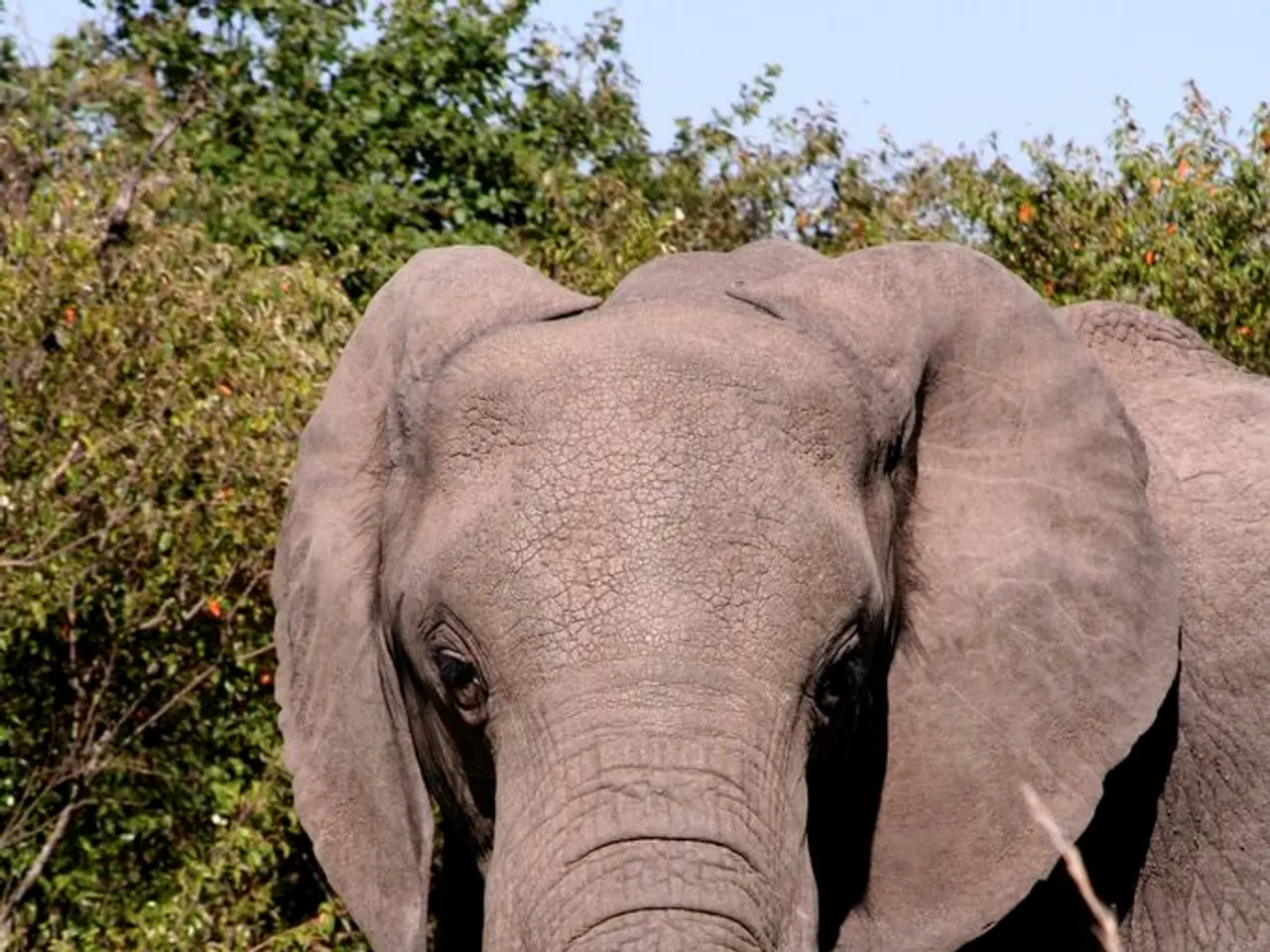Earth's Largest Mammals Unveil Stunning Intelligence and Emotional Depth: A Look into the Minds of Elephants
In the vast landscapes of Africa and Asia, a majestic creature roams - the elephant. Known for their sizeable brains and intricate social structures, these gentle giants are not only a spectacle to behold but also a testament to the wonders of the natural world.
Elephants possess one of the largest brains among land animals, weighing approximately 5 kilograms (11 pounds). This substantial brain size translates into exceptional cognitive functioning, enabling elephants to exhibit problem-solving skills, tool use, and advanced memory capabilities. They can recall water sources and migratory routes over long distances, even after several decades, demonstrating their remarkable memory.
Elephants form tight-knit family groups led by a matriarch, typically the oldest and most experienced female. These herds have intricate social structures, with individuals assuming different roles that contribute to the group's overall well-being. Communication within the herd is sophisticated, involving a combination of vocalizations, body language, and seismic signals.
One of the most striking aspects of elephant behaviour is their emotional depth. Elephants are often celebrated for their ability to express a wide range of feelings, including joy. They demonstrate empathy by assisting injured herd members and consoling individuals in distress. In times of loss, elephants display behaviours that resemble mourning rituals when a herd member dies, such as staying near the deceased, gently caressing bones, and appearing visibly distressed.
However, these magnificent creatures are facing numerous threats. Habitat loss, human-elephant conflict, and rampant poaching driven by the ivory trade have led to a severe decline in elephant populations across Africa and Asia. Organizations such as the World Wildlife Fund (WWF), the International Union for Conservation of Nature (IUCN), the Elephant Crisis Fund, Save the Elephants, and the Wildlife Conservation Society (WCS) are currently working worldwide on saving elephant populations through sustainable practices, anti-poaching measures, and habitat restoration programs.
Conserving elephants is essential for safeguarding biodiversity and preserving the planet's natural heritage. By supporting these efforts, we not only ensure the survival of these remarkable creatures but also deepen our understanding of animal behavior and highlight the urgent need for conservation. Understanding and appreciating elephants offers a unique window into the complexities of the natural world and our shared responsibility to safeguard it.
Read also:
- Understanding Hemorrhagic Gastroenteritis: Key Facts
- Stopping Osteoporosis Treatment: Timeline Considerations
- Tobacco industry's suggested changes on a legislative modification are disregarded by health journalists
- Expanded Community Health Involvement by CK Birla Hospitals, Jaipur, Maintained Through Consistent Outreach Programs Across Rajasthan








